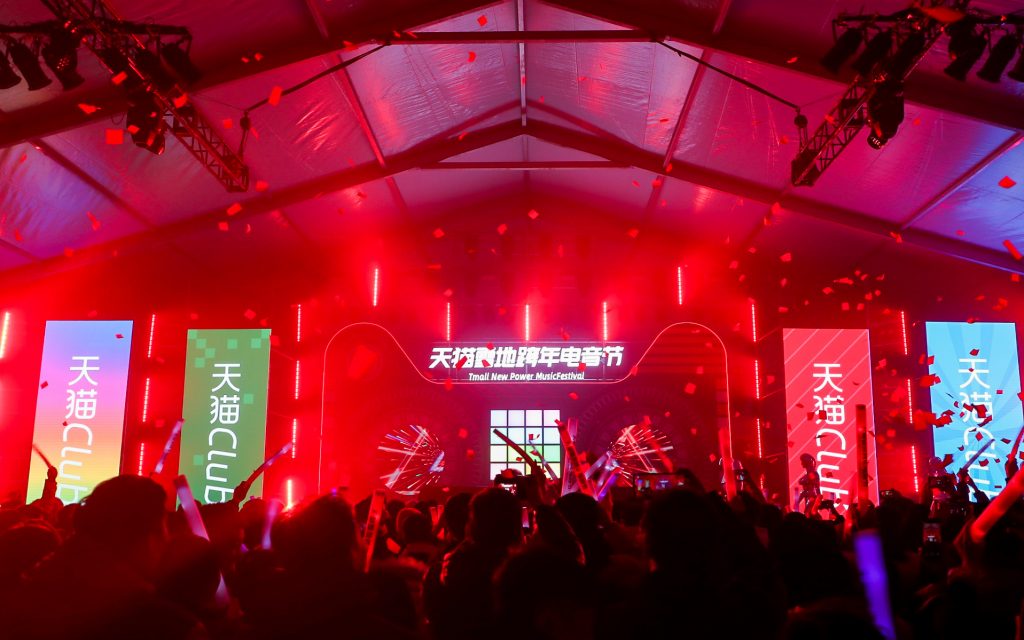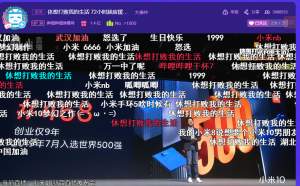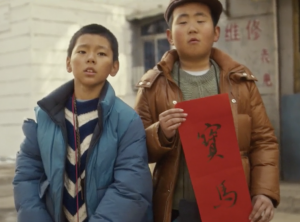
Tmall’s New Year’s Eve party
News From China
Brand campaigns around the January 1 New Year date are less elaborate than the ones for the upcoming Lunar New Year, but here are a few worth noting:
- Tmall hosted a music festival at ski town in Hebei Province for New Year’s Eve, with more than a hundred DJs and popular rapper GAI participating, and a new song released to promote the event. Various brands including Tsingtao and Oppo launched giveaways via social media in tandem with the event.
- Tmall International took viewers around the world to see how the New Year was being celebrated in various countries including New Zealand, Japan, France, and the United States.
- Express delivery service FlashEx’s New Year’s campaign focused on the lack of time off from work around the January 1 New Year’s date. Using the hashtag, “just one day off for the New Year is tough” (元旦只放一天假真的太难) FlashEx presented awkward scenes from daily life to highlight how the company can help resolve consumer difficulties with its services.
- Vivo collaborated with media company Xin Shixiang to film five notable Chinese in a final conversation with themselves reviewing 2019 using the X30 Pro phone. https://mp.weixin.qq.com/s/AsCgWWtP7IcHs758Kh4qTw
New Year’s Eve was a big night for star-studded entertainment galas hosted by major TV networks and video platforms. We look at some of this year’s innovations in this week’s case study, and outline highlights from traditional programming below:
- In its fifteenth year, Hunan TV’s show emphasized popularity with top celebrities and a high-tech 3D stage design.
- State broadcaster CCTV emphasized news and reviewing key moments of 2019 with its top anchors..
- Jiangsu TV adopted a “hardworking” theme and a sci-fi aesthetic with a 360-degree stage in the shape of a water drop.
- Dragon TV divided celebrities participating in its show into two teams for competition in an effort to draw more interest among viewers.
- Beijing TV used multiple stages for its broadcast, including a “Great Wall” stage and an “ice” stage, and used local Beijing culture as a major draw for audiences, along with international acts such as Westlife and Kana Hanazawa.
According to Starlink’s monthly report, there were 20 new reality shows launched in December 2019:
- Thirteen shows premiered online, with nine of those securing brand sponsors. Of the seven shows on television, 5 had sponsors
- Altogether there were 39 instances of brand sponsorship, with brands in the cosmetics and personal care, internet services and beverage industries most active.
- IQiyi’s “Fourtry” was the show with the most sponsors, with eleven total.
On the drama front, December saw 32 new series released, but only seven secured product placements:
- Twenty-five shows debuted online, but only six featured brands. Only one of the seven shows on television obtained brand cooperation.
- IT products, beverages and internet services were the most active brand categories.
- Legal drama “The Best Partner” (精英律师) took the lion’s share of product placements, with a total of 28 brands, including Lincoln, Asus and Voss.
News in English
- A review of brand integration in online reality shows in 2019 reports that 134 programs aired over the course of the year with 443 brands involved in various capacities, roughly on par with 2018 figures. Brands in the beverage and internet industry were most active in taking on title sponsorships, while mobile phone and auto brands reduced their spending in this area. GroupM
- Douyin says its short video platform has 400 million daily active users, a big jump from the 320 million DAUs it reported in July 2019. Technode
- Both Douyin and its international counterpart TikTok have code hidden in their apps that allows for deepfake face swapping, raising concerns about what parent Bytedance could do with sensitive biometric data collected from users. Techcrunch
- WeChat is trying to fend off Douyin’s challenge to its supremacy by introducing new features to improve search, show related content and integrate mini programs with WeChat parent Tencent’s short-video app. Technode
- Tencent agreed to buy ten percent of Universal Music Group from Vivendi, with a year-long option to add another ten percent on the same terms. Hollywood Reporter
- Tencent’s QQ Music and Bilibili are partnering to support music creators and collaborate on online and offline activities that can leverage the video platform’s half a million music creators and its status as the source of viral content. Pandaily
- Universal Beijing Resort will work with Yum Brands China to merge entertainment and dining through IP cooperation, themed stores, and online activities. Yum will also open a more upscale, health-conscious KPRO eatery at the resort, which is slated to open in 2021. PR Newswire
- Gucci is marking the Year of the Rat in China through another collaboration with Disney that will see Mickey Mouse featured in a capsule collection from the Italian fashion house. License Global
- A look ahead at some of the highlights coming to Chinese screens large and small in 2020, including online series and short-video programs created for vertical viewing. Radii
We’ve Got China Covered





